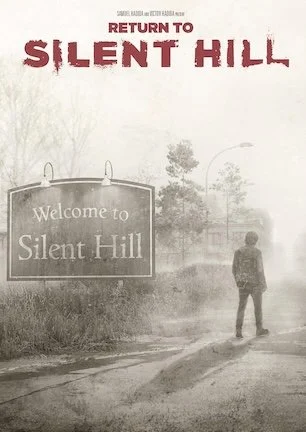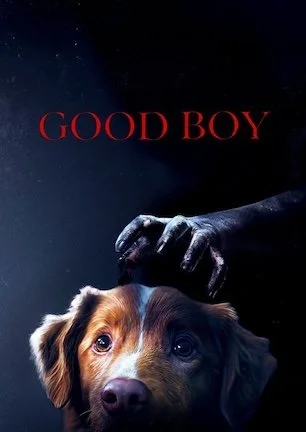Studio: The Orchard
Director: Radio Silence, Roxanne Benjamin, David Bruckner, Patrick Horvath
Writer: Matt Bettinelli-Olpin, Susan Burke, Dallas Hallam
Producer: Brad Miska, Roxanne Benjamin, Chris Harding, Radio Silence, Greg Newman
Stars: Chad Villella, Matt Bettinelli-Olpin, Kristina Pesic, Fabianne Therese, Nathalie Love, Hannah Marks, Dana Gould, Anessa Ramsey, Susan Burke, Davey Johnson
Review Score:
Summary:
Five tales of wayward travelers haunted by hidden secrets intersect along a strange desert highway.
Review:
“Southbound” was seemingly destined for difficulty in finding favor with me. Buoyed by blistering buzz following successful premieres at TIFF and Fantastic Fest in September of 2015, “Southbound” shot to the top of my “Must See” list when it made its way to Los Angeles as part of Beyond Fest’s announced lineup in October. Unfortunately, the film’s listing quietly disappeared from the event page before the annual festival officially opened. Pre-purchased tickets were refunded and a Wes Craven tribute took the “Southbound” slot without explanation for the sudden cancellation.
Never fear however, as “Southbound” made a belated date with a Hollywood audience in November as part of AFI Fest. Before the screening, the venue unexpectedly changed from the Chinese 6 to the Egyptian. No matter. I’ll take the prestigious, well run, and world famous Egyptian over the Chinese 6, whose drinking fountains have been out of order since Screamfest 2014 and whose men’s restroom always has at least one trash bag over a urinal, any day of the week. The only problem is that swap put the screening in close proximity to the Pig ‘n Whistle.
Arriving earlier than planned at the Egyptian, my girlfriend and I killed our remaining post-dinner time at the landmark bar next door, partaking liberally in its daily $2 beer special while eyeing the line forming outside the theater. I distinctly remember a moment of thinking, “one more drink could be one too many to keep my head on straight for writing a competent review.” “Nah,” countered the devil perched on my other shoulder. “Keep the fun flowing freely!”
My first hunch was right. One beer was one too many because even though my four pages of notes were surprisingly coherent as well as complete, my short-term memory of the movie was admittedly fractured. I walked out of the theater expressing disappointment while mentally committing to rating “Southbound” with an unfavorable 45/100 score, although I also copped to unintentionally closing my eyes for a moment more than once.
In assembling an initial review from my notes, I couldn’t reconcile my foggy perception with the praise I had been hearing. Social media circles were talking up the film regularly. I knew that some of those bloggers and writers had associations with “Southbound” filmmakers based on past posts and faces I’ve seen congregating with one another at local horror events. Was this a case of genre journalists perhaps using their outlets to help hype a friend’s production, or did the belly full of beer put me too out of it to recognize the same genius that the film’s supporters were supposedly seeing?
A cooler head thankfully concluded that writing a review based on a screening attended half-intoxicated (maybe more) is both unfair and irresponsible. To salvage the effort made to that point, I considered publishing negative criticism in a tongue-in-cheek style with a disclaimer outing it as a “drunk review” just to be fun and entertaining. Then I thought better of it, resolving to give benefit of the doubt to the accolades and watch the film once more with a stable brain at a later date.
Which is what I did when “Southbound” made its VOD debut in February 2016. I had to have been wrong, I thought. So many others were giving “Southbound” such Ebert-sized thumbs that my compromised attention must have missed something. Previously written notes regarding disconnected subtext eagerly awaited explanations. Surely a second, sober viewing of “Southbound” would be a fulfilling experience that would leave me less confused about its purpose and more satisfied by its storytelling achievement.
Not quite. While I am prepared to raise the rating based on technical merit, it turns out my inebriated mind wasn’t as unreliable as I presumed regarding the movie’s scattered execution as a stylized anthology.
“Southbound” is a horror/thriller collection of five tales concerning highway travelers haunted by the past, connected by zipper transitions meant to give an appearance of the stories being related. In reality, their nebulous connections are largely a lie.
Other than the first and final stories, the segments are not really related. True, a character moves from one scene change to the next in order to set up each segue, and that features most prominently between the second and third chapters, yet that particular character doesn’t even have to be the same person for the third story to move forward. It’s more coincidentally circumstantial that each story flows into the next.
The transition between “The Way Out” and “Siren” is a simple camera pan of a motel housekeeper passing a door literally closing on the first chapter and then another door opening on the next, for instance. The cleverness in this kind of conceit is illusory. It’s not a true narrative connection. It’s a technical convenience with no bearing on an overall plot. I prefer it to a smash cut anthology where the stories don’t even have that much in common, but it is disingenuous to claim “Southbound” is tied together just because its stories take place in adjacent imaginary purgatories.
The blood-spattered bandits of “The Way In” and “The Way Out” find themselves pursued by winged skeleton creatures. The stranded ladies in “Siren” run afoul of a comical cult. The distracted driver of “The Accident” is guided by mysterious voices while trying to save the life of the woman he ran over. A desperate man searching for his missing sister in “Jailbreak” fights off humans who sprout creature claws before encountering a swarm of chalk-skinned troglodytes. These are different stories in different worlds told in different tones.
Aside from zipper transitions, the only other linking thread is backstory ambiguity. “Southbound” injects unexplained mystery into virtually every character motivation and plot point. It’s an approach intended to evoke a Rod Serling style of frenzied tension and eeriness, but “Southbound” goes too far into “Lost” territory by putting vague suspense onscreen and then expecting the audience to invent a meaning behind it all.
Characters continually exchange knowing glances, whisper in ears, or cryptically call back to unseen events. Dialogue uses lines like, “you wanted this. We did this for you. We did this for Kathryn” without anyone specifying what “this” is. The friends in “Siren” regularly reference someone named Alice, yet the device never pays off anything aside from instilling the lead lady with unspecified guilt over this unknown woman’s death. The viewer is always behind what everyone in the movie already knows, and there is never an opportunity to be allowed into that inner circle.
Inconceivable logic and sinister secrets are necessary ingredients in “Twilight Zone” nightmares, except “Southbound” simultaneously aims to ape the EC comics coda of transgressors receiving a comeuppance. The insurmountable issue here is morality plays do not work when the audience has no understanding of the crime committed, or when the criminal is allowed to escape unpunished. Knowing why monsters rise from cracks in the ground, seemingly innocent people take knives to their stomachs, and random barflies suddenly sprout claws is essential for “Southbound” not because it is frustrating to have answers withheld, but because context is required to care about these characters and to understand the reasons why their arcs exist in the first place.
“Southbound” tries to be a cohesive feature anthology rather than a collection of disparate parts and it puts up a front of being exactly that. A certain late-night dreaminess exists underneath it all, as there are terrific themes and terrifying images perpetually bubbling up from below. Yet like the movie’s synth score, which is misplaced since nothing else about the presentation suggests a 1980s or even 90s throwback appeal, spend several months with it on the mind between repeat viewings and someone snapped from its trance can see that not every element is as tight or as relevant as initial appearances want you to believe.
Review Score: 60






While the 110-minute runtime could use a trim to maintain more energy, “Redux Redux” is an easy recommend for anyone who enjoys low-key sci-fi.